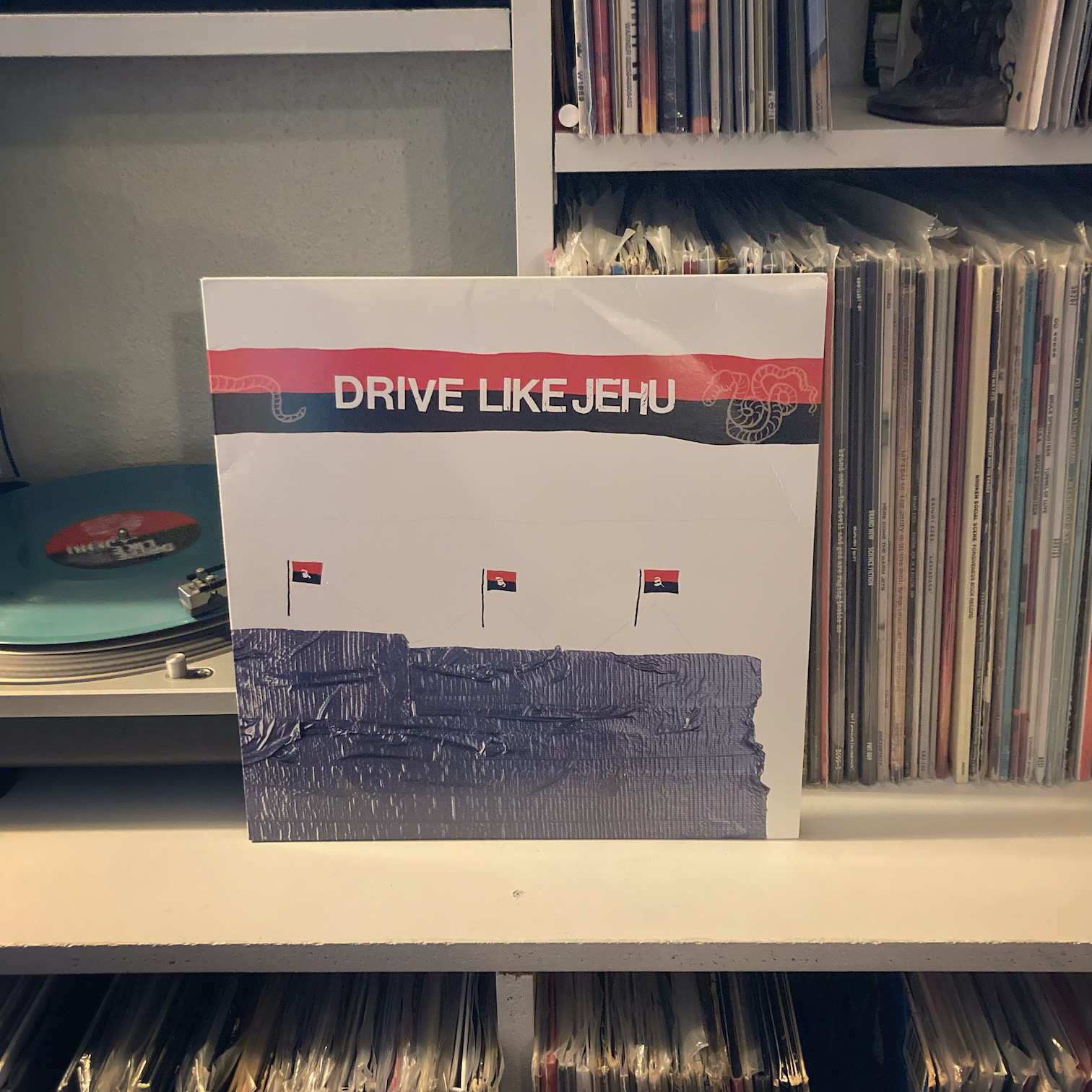
1991 has been called “The Year that Punk Broke.” The success of Nirvana’s Nevermind led record companies to make a mad dash to sign all the noisy, abrasive, energetic bands they could find, leading to some absolutely bizarre major label deals for bands like Melvins, Smashing Pumpkins, and Jawbox. DIY stalwarts Fugazi purportedly turned down multiple million-dollar deals.
One of the noisier bands to land one of those deals was Drive Like Jehu, whose sprawling math-rock/post-hardcore masterpiece Yank Crime was somehow released on Interscope.
But Interscope wouldn’t have been interested had it not been for the success of their self-titled debut, which lacks none of the fury or ambition of its follow-up.
Drive Like Jehu is best known for the fiery opener “Caress” (which has been covered by Deftones), but it’s hardly the only worthwhile track on here. In fact, when I first listened to it, I found it to be every bit as consistent and rewarding as Yank Crime.
The relationship between debut and follow-up is often fraught with contrasts. A debut may be energetic and engaging but lack the clarity of vision of the follow-up. Likewise, a sophomore record might be more ambitious, but it isn’t as earnest or exciting as the record before it. But between the self-titled record and Yank Crime, neither disc is lacking in the beneficial qualities of the other.
Listening to Yank Crime first, I might have expected Drive Like Jehu to be either more accessible or even more challenging, but neither seems to be the case. Instead, they manage to combine dissonant guitar work, throaty half-screamed vocals, and angular rhythms with some moments of surprising catchiness (“Atom Jack” practically begs to be sung along to). The longer song structures that filled much of Yank Crime is present here, with both “O Pencil Sharp” and “If It Kills You” stretching past the seven-minute mark without lagging for a second. “If It Kills You” is especially chaotic in its sojourn through rhythms and genres, even borrowing a riff from thrash metal for a second, but it never feels disjointed. As if that track weren’t sprawling enough, it flows into “Good Luck In Jail” without stopping (I even thought it was the same song for a bit).
Thirty years later, it’s hard to find anything that’s gone stale or rotten on this disc. A large part of that is likely due to the huge shadow of influence Drive Like Jehu still casts on aggressive, mathy post-hardcore acts, with bands like Native, METZ, and even The Armed showing glimpses of their legacy in their own careers. But with something as explosive and dynamic as this, two legendary albums isn’t enough: a little bit of mimicry is welcome.